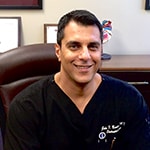What is Cardiac Sarcoidosis?
Cardiac Sarcoidosis is a disease that results in the development of inflammatory cells called granulomas. Cardiac Sarcoidosis can affect many areas of the body, including the lungs, lymph nodes, eyes, skin, and heart. Cardiac sarcoidosis (CS) is diagnosed in about 2-5% of all cases of cardiac sarcoidosis, however, many who are experiencing the disease do not have severe symptoms and may go undiagnosed.
What Causes Cardiac Sarcoidosis?
The exact cause of cardiac sarcoidosis is unknown; however, it has been linked to genetic causes as well as an overreaction of the immune system. During cardiac sarcoidosis, the immune cells begin to collect into granulomas, building up and affecting the function of the heart. This can be triggered by bacteria, viruses, dust, or chemicals. Certain factors can increase the likelihood of developing cardiac sarcoidosis, including:
- Age – Those between 20 and 60 are most commonly affected.
- Gender – Women are more likely to develop the disease.
- Race – African American individuals are at a higher risk.
- Family history – A family history of cardiac sarcoidosis can indicate a higher risk for the disease.
What are the Symptoms of Cardiac Sarcoidosis?
In some cases of cardiac sarcoidosis, no noticeable symptoms occur, or symptoms are very mild and go undetected. When cardiac sarcoidosis affects the heart, complications with its rhythm and function, result in the following symptoms:
- Irregular heartbeats (arrhythmias)
- Heart palpitation (fluttering)
- Fainting (syncope)
- Lightheadedness
- Shortness of breath
- Coughing or chest tightness
Have Inquiries About Our Services?
How is Cardiac Sarcoidosis Treated?
Cardiac sarcoidosis can be difficult to diagnose, but if you experience symptoms or an irregular heartbeat or you experience other areas affected by cardiac sarcoidosis, Dr. Beshai can perform several different diagnostic tests. An electrocardiogram is one of the first tests Dr. Beshai will suggest, giving him a picture of the heart’s electrical activity to detect any irregularities. He may also suggest a Holter monitor, measuring the heart’s activity for an extended period of time (24-48 hours). An echocardiogram or cardiac MRI can also be used to check for abnormalities in the heart’s structure.
If Dr. Beshai suspects cardiac sarcoidosis, he will begin developing a treatment plan to help manage the disease and prevent complications. The first step is often medications to suppress the immune system and reduce inflammation associated with the disease. If further treatment is needed or the disease progresses, Dr. Beshai might perform a catheter ablation procedure, destroying the abnormal heart tissue and causing cardiac sarcoidosis. For those who experience more dangerous arrhythmias due to cardiac sarcoidosis, Dr. Beshai might use an implantable cardioverter defibrillator (ICD). An ICD is attached to the heart and delivers an electrical shock to restore the heart’s normal rhythm.
Scheduling Your Cardiac Sarcoidosis Treatment Appointment
Although cardiac sarcoidosis cannot be cured, Dr. Beshai offers several solutions to managing the condition and preventing its progression. If you experience symptoms of cardiac sarcoidosis or believe you could be at risk for the disease and want to know more about your treatment options, please call our office at 480-634-4449 or fill out our online form and schedule your appointment at the Heart Rhythm Institute of Arizona.
The Heart Institute of Arizona has a wide array of services that come with our premium care. From in-office dianostics and treatable conditions, to hospital based procedures, we’ve got your heart covered.
Dr. Beshai is a board-certified electrophysiologist internationally renowned and respected for his expertise and research. Having published in major medical journals and travelled all over the world to present research, he is dedicated to providing innovative, state-of-the-art care to his patients.

